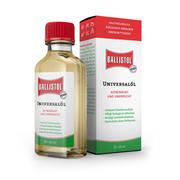Taking care of your pocket knife
When you purchase a pocket knife you want to use it for a long time. As such maintenance is very important. Cleaning your pocket knife is the first step, the second is greasing it, and the third is carefully putting it back together.
Please note: You open your pocket knife at your own risk. Before you open your knife we recommend you first read the manufacturer’s warranty conditions. There are, for instance, brands that have determined that if the knife is opened the warranty expires.
Disassembling your pocket knife
To properly take care of your pocket knife you need to disassemble it. In most cases your pocket knife can be assembled when you use a torx, allen, or flat screw. It is important to use a screwdriver that fits. As such you prevent the screw and knife from damaging. Are you not in the possession of a fitting torx- or allen screwdriver? We sell complete the torx and allen key sets with all the small sizes you often find in pocket knives.
The screws you remove from the pocket knife are often very small and very difficult to order online. You therefore need to make sure that you do not lose them. The best thing to do is to sit down at your (kitchen)table and place all the screws you remove on a piece of paper in a specific order. As such you can highlight on that piece of paper where the screw came from. Trace, for instance, the form of the knife on a piece of paper and use arrows to indicate where each screw belongs.
Be extra careful with the assisted opening. The spring that is placed inside can pop out before you have figured out where everything is supposed to go. In the end you will find yourself sitting at that same (kitchen)table with your hands or piece of paper filled with screws or springs, without having a clue how to put it back together again. Also be careful when you are dealing with knives that have been enhanced with ball bearings. When those fall out.. well let’s just say it ain’t pretty
There are pocket knives that cannot be disassembled, such as many Swiss pocket knives. Leatherman won’t allow you to disassemble Leatherman multi-tools because the brand cannot guarantee that once you do everything will still run smoothly and still be safe to use. In that case it is key to clean all moving parts as best you can on the outside, and grease them regularly.
Cleaning your pocket knife
To clean all the separate parts of your pocket knife all you need is an old t-shirt or a paper towel. When you have removed most of the dirt you can afterwards, by adding a couple drops of oil, clean the parts again to really remove all the dirt. For it we recommend Benchmade Blue Lube Cleanser. Especially when you often carry your pocket knife in your jeans you will definitely find a lot of dust on the inside of your knife. You also need to make sure you properly clean the washers, that part of the knife that ensures that it opens and closes smoothly.
When cleaning the blade please be careful, we wouldn’t want you to end up at the emergency room. After all, even though you have disassembled it, the knife remains sharp.
Greasing your pocket knife
When you clean a knife you also remove a part of the oil. It is therefore important to add grease to your knife to make sure it will still smoothly open and close. To grease your pocket knife we recommend Benchmade Blue Lube Lubricant or the Eden Oil Pen. The most important thing to keep in mind when greasing a pocket knife is that you are economical. Only a couple drops of oil are enough to make your knife run smoothly for months. When you use too much oil, the oil can start to leak out. Or it can attract an additional amount of dust which means that your knife will need to be cleaned more often. Add a thin layer of oil to all the moving parts and your knife will function perfectly for quite a long time.
When you clean a knife enhanced with an assisted opening don’t forget the spring. When the spring hasn’t been greased it can start to rattle in between the liner and the handle. This could occur with Zero Tolerance knives. Fortunately you can easily solve this with some silicon lubricant. Oil won’t do much good here. When you add a bit of silicon lubricant to the spring it will stop rattling and run smoothly again.
Assembling a pocket knife
When all the individual parts of your pocket knife have been cleaned and greased it is time to put it back together again. If everything went according to plan you still know where all the screws belong. The handles and (if there was one) pocket clip can simple be mounted to the handle. The pivot is a screw you should pay a little more attention to. After all, you need to try to find out how the blade opens and closes when you add the pivot. Lightly screw in the pivot and try out the opening and closing mechanism. Too light? Time to get out the screwdriver again. Too heavy? Simply loosen the screw a bit. And when we say a bit, we mean a bit. Sometimes a 15 degree angle can make all the difference in the world.
When you regularly clean and sharpen your knife you can enjoy it for years to come!


















?%24center=center&%24poi=poi&%24product-image%24=&fmt=auto&h=500&poi=%7B%24this.metadata.pointOfInterest.x%7D%2C%7B%24this.metadata.pointOfInterest.y%7D%2C%7B%24this.metadata.pointOfInterest.w%7D%2C%7B%24this.metadata.pointOfInterest.h%7D&scaleFit=%7B%28%24this.metadata.pointOfInterest%29%3F%24poi%3A%24center%7D&sm=c&w=1208)



?%24center=center&%24poi=poi&%24product-image%24=&fmt=auto&h=500&poi=%7B%24this.metadata.pointOfInterest.x%7D%2C%7B%24this.metadata.pointOfInterest.y%7D%2C%7B%24this.metadata.pointOfInterest.w%7D%2C%7B%24this.metadata.pointOfInterest.h%7D&scaleFit=%7B%28%24this.metadata.pointOfInterest%29%3F%24poi%3A%24center%7D&sm=c&w=1208)